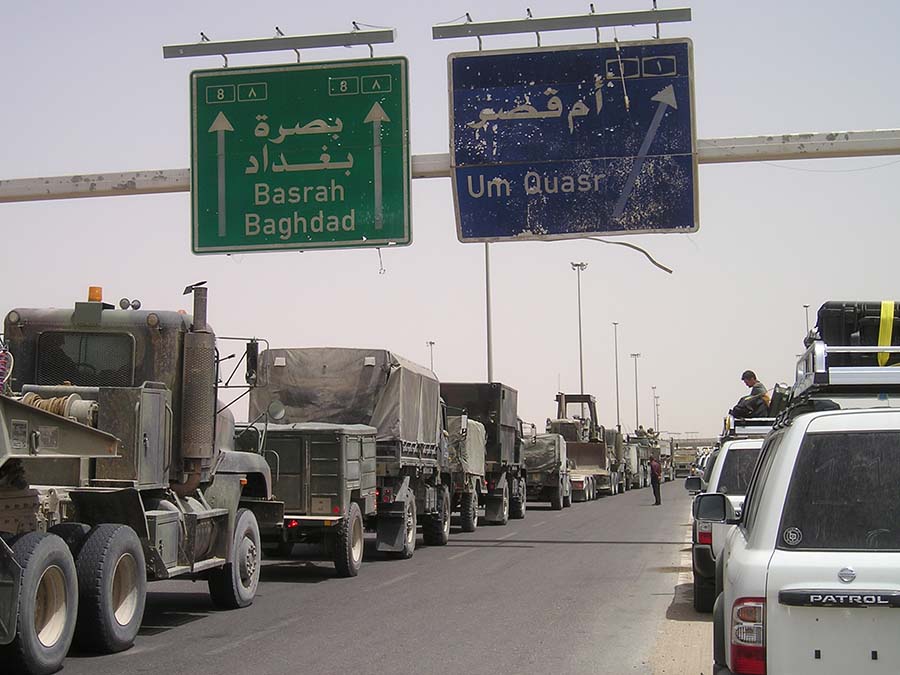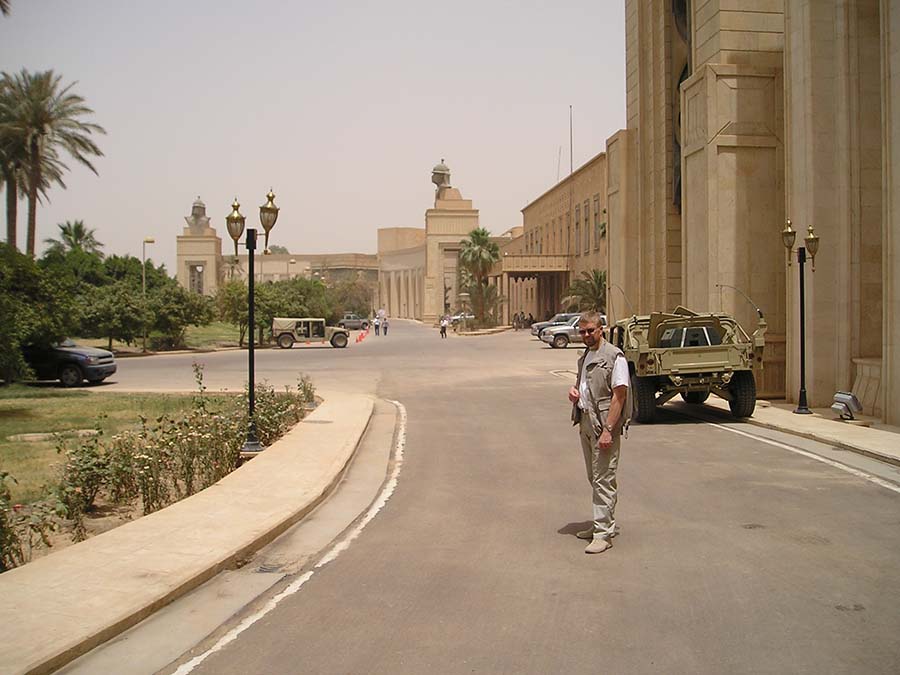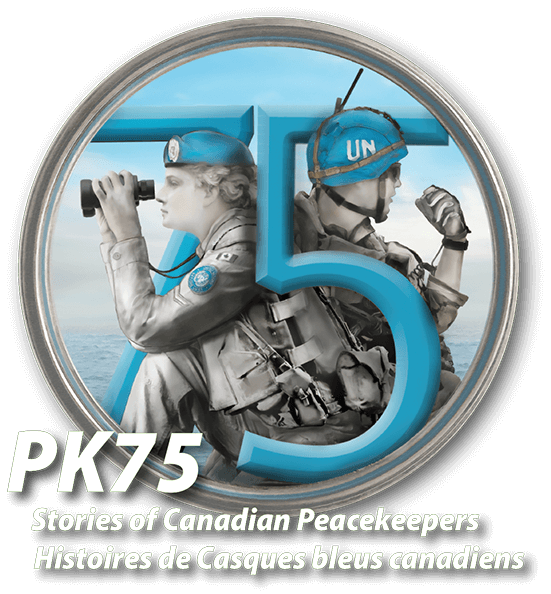

The Six Billion Dollar Man — A foreign policy opportunity in Iraq
On March 20th, 2003, the U.S.-led “coalition of the willing” invaded Iraq, with the dual aim of searching for weapons of mass destruction (WMDs) and removing Saddam Hussein from power. As evidence of WMDs was inconclusive, Operation Iraqi Freedom was controversial. Canada was unconvinced by the intelligence, and declined to support combat operations. It was a bold decision from a usually like-minded partner of America and Britain, a partner in the Gulf War (1990–1991) and the post 9–11 global War on Terror. Nonetheless, political, economic, and diplomatic stars aligned in a foreign policy opportunity.
The American dominated invasion overwhelmed Iraqi defenses and democratization plans rolled out. High among priorities was justice sector peacebuilding, a linchpin of internal security. Coalition justice experts were deployed as war morphed into insurgency. Canada had rejected the rationale for invasion but was to play a role in post conflict reconstruction.
Mustering at Fort Bliss, Texas, four Canadian experts joined hundreds of Americans deploying in support of reconstruction. Preparations included briefings, medicals, and drawing kit. Included was a regime of preventive vaccinations and instruction and protective equipment against exposures to nuclear, biological, or chemical agents (WMDs). Next, Canadians met other justice professionals in Kuwait, for advanced briefings, convoy preparations, and a group equipment issue. With preparations complete, the group convoyed to Baghdad. Unfortunately, increasing insurgent activity soon restricted the freedom of movement in country, and ultimately the effectiveness of the planning mission was impaired.
While combat operations had ended, there was still no evidence of WMDs. Nonetheless, and in an evolving security environment, ORHA moved ahead with redevelopment plans. Six billion dollars was earmarked for contracting by coalition partners. Canada, though not a coalition partner, was asked to follow up its planning contribution by deploying a senior police officer. I was selected and deployed to Baghdad and the Green Zone. The responsibilities were diverse: de facto liaison officer, advisor to Iraqi officials, tactical and investigative consultant, and senior official for intelligence of kidnapping cases. It was peacebuilding in the midst of insurgency. The professional challenges were extraordinary, but the professional relationships were strong. The memories, good and bad, will be lifelong.
As the only Canadian working at ORHA, I was conspicuous in the RCMP’s uniform. White shirt, RCMP epaulets, Canadian flags, blue trousers with cavalry stripe, and rank insignia like a British army Lt/Col was distinctive in a sea of disruptive pattern materials.
One day early in my deployment, I was with colleagues on morning coffee break. As usual we congregated at the rear loading dock of ORHA HQ (former Republican Guard Palace). A service road ran below and parallel to the loading dock but was off limits to vehicle traffic because of the risk of explosive devices. People deploying to Baghdad traveled by bus from the airport, then for security reasons disembarked 200 meters or more from the palace. In diverse groups, people walked to the palace for in-processing, past our coffee-perch.
Normally there was little communication with new arrivals. We were on break, and they were exhausted from a journey. Today was different. Making their way past us was a group of professional looking people, distinctive in business suits and high-end luggage, passed. One man stopped as the group continued. Staring at me above him on the dock, he pointed at my uniform and proclaimed. “You’re him! You’re the Six Billion Dollar Man!" Taken aback I asked, “what do you mean?” “I apologize” he said. “I just arrived from Washington, from the White House.” “Earlier this week we met with the President discussing reconstruction and the availability of six billion dollars for contracting. The President said he wanted Canada included among contracting countries, though it was not a coalition partner. He said, “find a way, just make it happen”. Researching, we discovered a Canadian police officer attached to ORHA. That’s it, we said, that’s rationale to include Canada with the partners. “He’s the Six Billion Dollar Man”. And here you are.
While Canada rejected “evidence” rationalizing invasion and occupation of Iraq, diplomatic, political, and economic realities aligned to present an important foreign policy opportunity that emerged as a Canadian role in reconstructive peacebuilding.
Biography
David Beer served thirty-five years with the Royal Canadian Mounted Police (RCMP) in a variety of operational and command roles. He acquired a unique depth and breadth of operational and international policing experience that included counter terrorism, intelligence, major crime, organized crime, and proceeds of crime investigation. At the time of retirement in 2009, he served as the RCMP’s Director General of International Policing for Canada, with responsibility for International Operations, Interpol Canada, Peacekeeping Operations, and International Policy Development.
C/Supt. Beer deployed to conflict and post conflict areas representing Canada, other governments, and international agencies in a variety of command, evaluation, assessment, and development roles. This experience included deployments of varying duration and executive responsibilities to Iraq, Central African Republic, Liberia, Democratic Republic of Congo, and extensive experience in Haiti, including bilateral deployments dating back to the 1990’s. His program experience includes development and evaluation projects with the African Union, NATO, European Union, UN DPKO Police Division, the Norwegian Refugee Council, and training programs for the U.S. Institute of Peace.
In 1996–1997, in a development and capacity building role, Beer deployed to Haiti, leading Canada’s first international, police-led, justice capacity building mission. Representing CIDA/ACDI (Canadian International Development Agency), the peace development project focused on the newly established civilian police in Haiti, and on reforming an archaic and corrupted justice system. Profiting from a close working relationship with a widely respected, international business development expert Tom Body, and the Honorable Rene J. Marin, a visionary of international justice and human rights, Beer established and managed highly successful partnerships with the Haitian Government, the U.S. Department of Justice (ICITAP: International Criminal Investigative Training Assistance Program), and the U.S. State Department (INL: International Narcotics and Law Enforcement). He returned to Haiti in 1998–1999, growing the mission four-fold, and increasing the capacity and the complexity of a project that evolved to include executive and mid-level management, forensic laboratory and investigation, criminal intelligence analysis, police trainers, and establishing a police academy library.
In 2003 Beer deployed to Iraq as Operation Iraqi Freedom ended. The partnership established with the U.S. agencies ICITAP and INL held him in good stead, as these agencies played important roles in Iraq. Representing Canada’s Department of Foreign Affairs (DFAIT) this Mission had distinctive stages. Beer deployed with Canadian experts joining international partners from the U.S., UK, and Denmark, in a nationwide needs assessment for police and justice programs. Beer then deployed as a senior police advisor. His designated role in a complex and evolving security environment was diverse, from executive consultant to tactical advisor, to intelligence-led police operations.
In 2004–2005, Beer deployed to Haiti and MINUSTAH as UN Police Commissioner, commanding an authorized policing component of over 1600 with a complex mission mandate. The complexity of the mission was compounded by the fact police contingents came from some 40 different countries, spoke a dozen different primary languages, and represented a wide variety of policing capacities, capabilities, and methodologies.
C/Supt. Beer is a past Vice President of the International Association of Chiefs of Police (IACP), and Chair of the International Division. He continues to serve the IACP’s International Steering Committee (www.iacp.com), and the Executive Committee of International Managers of Police Academy and College Training (IMPACT). Beer also served as Senior Policing Advisor and Africa Programs Director for the Pearson Peacekeeping Center, and served the Global Policing Policy Community for the United Nations Police Division (UNPOL).
Today C/Supt. Beer is Senior Advisor of International Policing at The ALRM Group, a Canadian security sector developer (www.thealrmgroup.com), and as Director at Confidion Inc., a Nova Scotia/UK based research and analysis consultancy (www.confidion.com).
Chief Supt. Beer holds a Master of Arts in Political Science and International Relations from the University of Windsor (Windsor, Canada), and a Bachelor of Arts in Sociology and Anthropology, from Carleton University (Ottawa, Canada).

Iraq 2003 - Kuwait to Baghdad - Justice team, lightly armed civilian convoy waiting for highway access.

Iraq 2003. Republican Guard Palace, ORHA HQ (Coalition), inside the Green Zone.


